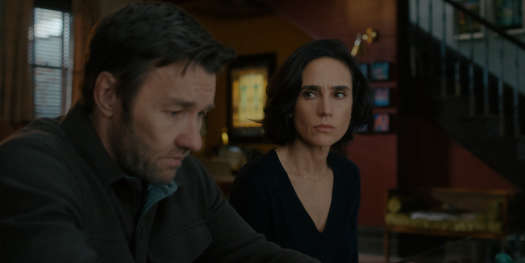During the opening moments of the deceptively simple, extremely low budget comedy and social observation piece, I Declare War, the rules for a childhood game of war are detailed through animation. It's essentially a Capture the Flag scenario with toy guns debilitating players for a brief time to allow for a getaway or the use of a water balloon (grenade) to take them out of the game entirely. Starting in the midst of this outdoor game, the sides are divided between leaders Quinn (Aidan Gouveia) and PK (Gage Monroe) and their respective troops. PK and best friend Kwon (Siam Yu) are the more stable of the two groups, having a clear strategy and chain of command, while Quinn's group quickly devolves into anarchy when the mercurial Skinner (Michael Friend) usurps his leader and bends the rules by capturing Kwon and utilizing tactics far more violent and personal than the playful game intends. In the midst of this, Jess (Mackenzie Munro)—a newcomer to the game made controversial by her gender—tries to turn her fellow soldiers on each other to avenge the death of Quinn, her underlying romantic motivation. Superficially, the interactions and varying deceptions plotted by each player, all of whom have very specific and distinct personality types, makes for a surprisingly engaging and visceral experience despite being little more than a filmed account of 12-year-olds running around in the woods. In part, this effectiveness stems from a consistent, acutely realized, sense of humour. One boy spends most of his downtime coming up with "would you rather" scenarios involving canine fellatio or computer deprivation; Jess uses sly flirtation tactics to pit the boys against each other; and characters routinely step back from heightened drama to argue about rules, acknowledging the absurdity of it all. But what's even more intriguing than the appropriately positioned comedy and surprisingly astute character deconstructions—everyone gradually unravels to reveal base insecurity as impetus for action—is what a movie about kids playing at war suggests about society overall. While the boys acknowledge awareness of populist war movies, emulating some of the behaviours and posturing they've seen on the big screen, the base motivations for fighting and for reaction to unresolved trauma isn't entirely dissimilar to those that motivate adults. Whether an intense obsession with control and rightness is the instigator of conflict or an inability to reconcile rejection, the contextually silly signifiers of angst ring surprisingly true to bigger global conflicts. As such, beneath the surface of a seemingly cute teen movie is a sly commentary on our collective inability to overcome basic human flaws and insecurities. No supplements are included with the DVD, which is unfortunate, since it might have been interesting to see how conscious everyone was of real world parallels.
(Phase 4)I Declare War
Jason Lapeyre & Robert Wilson

BY Robert BellPublished Jul 20, 2013



